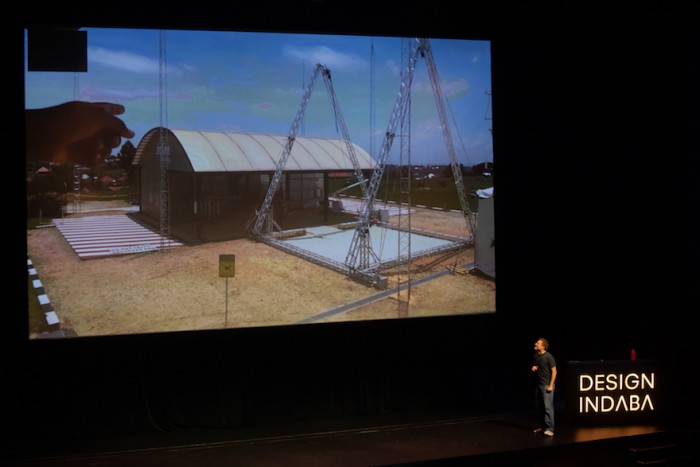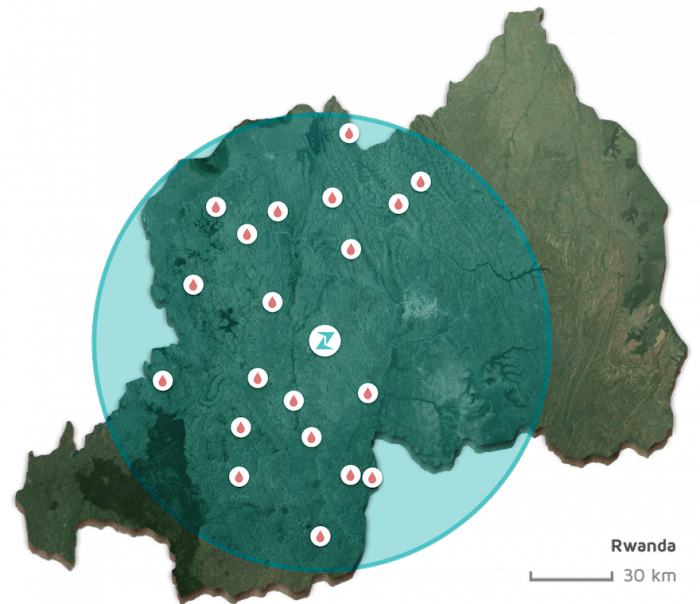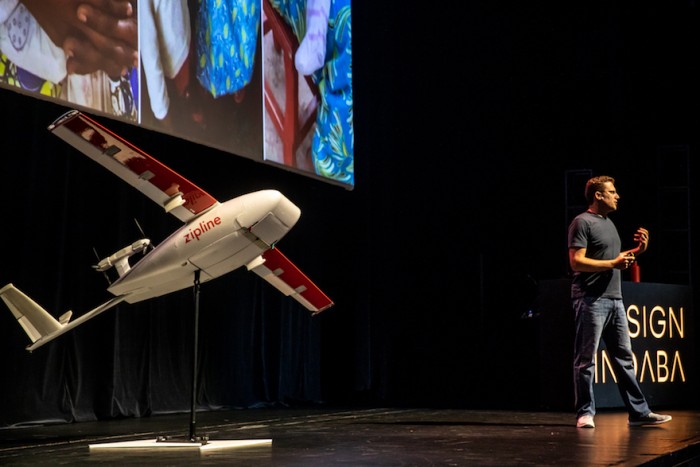Delivering medical supplies to remote areas is a problem that has been in existence for decades. And after billions have been spent and a lot of promises made, it seemed that the problem was no closer to being solved. That was until Zipline came onto the scene.
Co-founded by Keenan Wyrobek and built with a team that operates both from Silicon Valley and Rwanda, the medical drone delivery service has been a phenomenal success with over 10 000 medical supplies delivered so far.
Wyrobek, who heads product design and engineering at Zipline was a speaker at this year's Design Indaba Conference where he not only spoke about their work but took the audience on a live-tour of the operations centre in Rwanda.
Wyrobek is a product engineer and self-confessed robotics geek.
"I have been tinkering with robotics and other technologies since I was a little kid. I have always loved taking things apart, learning how it worked and then trying to make it do the things I wanted it to," he says.
For the Zipline team it was about trying to solve this worldwide logistics problem not only in a less expensive way but also very efficiently and reliably.
He says it was not them who chose Rwanda as the country for the project but that Rwandan officials chose Zipline.
"Rwanda was the first country for Zipline largely because Rwanda chose us," he says during his inteview following his Design Indaba talk.
"They not only had the data and knew how to use the data to internally make the case on why this is absolutely needed. But they took the initiative to engage with us and work with us through the design process to figure out how to do this."
For example Zipline worked with the Rwandan government as well as the country's civil aviation authority to come up with a flight plan for the drones.
This means that should a clinic or hospital in Rwanda that needs medical supplies be inaccesible to motor vehicles, the Zipline team can despatch the supplies (which includes blood and vaccines) quickly and more easily than it would take to try and reach the place by road.
Zipline's range is unprecedented, and national scale coverage is achievable from a single home base. To activate the service, a health worker places an order by text message. The Zip launches into the sky within minutes with no pilot required.
The medical products are then dropped off, landing gently and accurately at the health facility in an open area the size of a few parking spaces.
Wyrobek says that he's worked on a lot of projects but nothing like this before.
"I have worked on a lot of projects in my life. Some of which have scaled wildly but in the end they didn't matter. I have also worked on a lot of projects I was passionate about because they mattered but we never figured out how to scale them. So the team behind Zipline all connected because they wanted to find a project that could do both."
He adds: "Of course when talking about things that matter health is really important. So health is where we started looking and this is where we found the connection between something we knew we could do and a problem that needed solving."
Watch the full interview with Wyrobek:
Read more on innovation in healthcare:
How the Vula app is revolutionsing the healthcare system in South Africa
Caroline Smeenk makes it easier for rural women to to independently monitor their health










